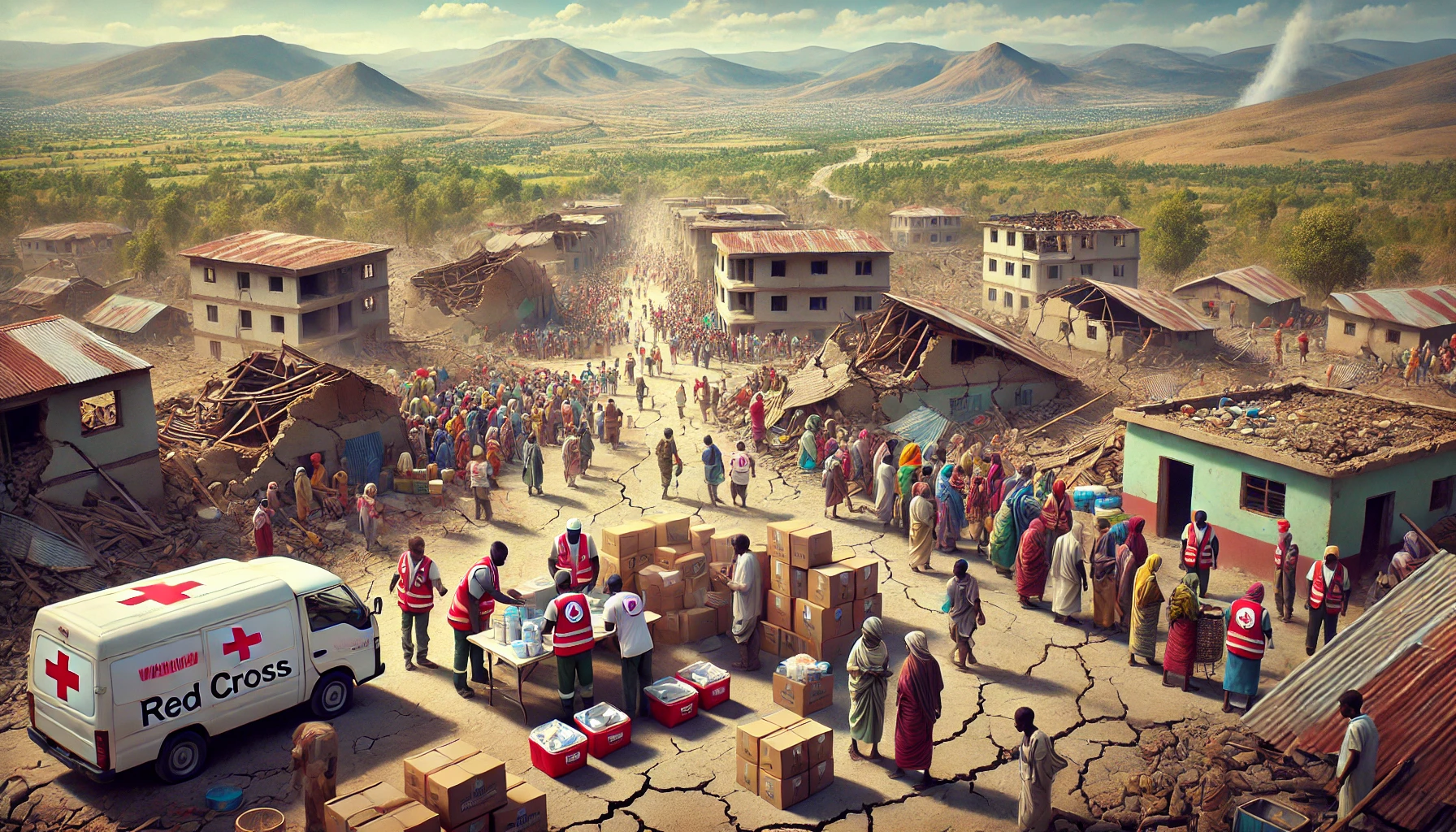UNHCR Races to Aid Survivors of Deadly Earthquake in Eastern Afghanistan
Survivors, many of whom saw their homes collapse before their eyes, spent the night outdoors under unsafe conditions, with aftershocks adding to their fears.

- Country:
- Afghanistan
A devastating earthquake struck eastern Afghanistan on Sunday, leaving behind widespread destruction, tragic loss of life, and urgent humanitarian needs. According to early estimates, more than 800 people have been killed, around 3,000 injured, and entire villages reduced to rubble. Survivors, many of whom saw their homes collapse before their eyes, spent the night outdoors under unsafe conditions, with aftershocks adding to their fears.
Immediate Impact and Rising Casualties
The epicenter of the quake hit some of Afghanistan’s most remote and vulnerable provinces. Roads have been blocked or destroyed, hampering search and rescue operations and making it difficult for aid convoys to reach survivors. Officials and aid workers fear that the actual death toll may rise further in the coming days as more people are discovered trapped beneath collapsed buildings.
Families have been torn apart, with many still searching for missing loved ones. Health services in affected areas are overwhelmed by the sheer number of casualties. Field hospitals and clinics, already strained by years of underinvestment, are unable to keep pace with the influx of patients, particularly those with serious injuries requiring urgent surgical care.
UNHCR’s Swift Humanitarian Response
From the early hours of Monday, the United Nations Refugee Agency (UNHCR), working in close coordination with UN partners and local authorities, mobilized resources to join relief efforts. An inter-agency rapid needs assessment is currently underway to guide emergency response strategies.
UNHCR has deployed pre-positioned essential relief items from stockpiles in Kabul, including tents, blankets, and solar lamps for displaced families. Additionally, emergency stockpiles stored in Termez, Uzbekistan, are being evaluated to meet further needs. These resources are intended to provide immediate shelter and protection as thousands of families remain homeless and vulnerable.
Vulnerable Groups at Greater Risk
Women and children, as in many crises, are among the most at risk in the aftermath of the earthquake. UNHCR has raised concerns about the shortage of female humanitarian staff, which complicates efforts to adequately address the specific needs of women and girls, including access to health care, privacy, and protection from gender-based violence.
Particular attention is also being given to other vulnerable groups, such as people with disabilities, older persons, and child- or female-headed households. UNHCR is working with national and international partners to ensure that those most at risk are identified and provided with life-saving support.
A Crisis Within Crises
This disaster compounds an already dire humanitarian situation in Afghanistan. The country is reeling from multiple, overlapping crises, including prolonged drought, economic hardship, and the return of millions of Afghan refugees from neighboring countries.
Since April 2025, more than 478,000 Afghans have returned from Pakistan alone, with approximately 337,000 crossing back through Torkham—a border crossing located near the earthquake’s epicenter. Alarmingly, nearly one-quarter of these returnees settled in Nangarhar Province, which is now among the hardest-hit areas. Communities already struggling to absorb 2.5 million returning Afghans this year are now grappling with fresh devastation, stretching their limited resources to breaking point.
Global Appeal for Urgent Support
UNHCR has emphasized that humanitarian stocks and capacities are already stretched thin. The agency is calling for urgent international support to scale up relief efforts and prevent further tragedy. Without swift action, thousands of families risk facing worsening conditions, especially with limited access to food, clean water, shelter, and medical care.
“This earthquake has added death and destruction to a country already in crisis,” said UNHCR officials. “Humanitarian assistance is desperately needed now. We urge the international community to step forward and help the people of Afghanistan in this time of immense suffering.”
The earthquake stands as a stark reminder of Afghanistan’s fragility in the face of natural disasters, compounded by conflict, displacement, and economic instability. As global humanitarian actors rally to respond, the focus remains firmly on saving lives, protecting the vulnerable, and helping communities begin the long road to recovery.
ALSO READ
Punjab's Devastating Deluge: A Humanitarian Crisis Unfolds
Afghanistan Earthquake: Humanitarian Crisis Deepens Amidst Global Aid Challenges
The Return: Syrian Refugees Heading Home Amidst Dynamic Changes
Devastating Earthquake Strikes Eastern Afghanistan: A Humanitarian Crisis Unfolds
Britain Halts Family Reunification for Refugees Amid Migrant Influx










